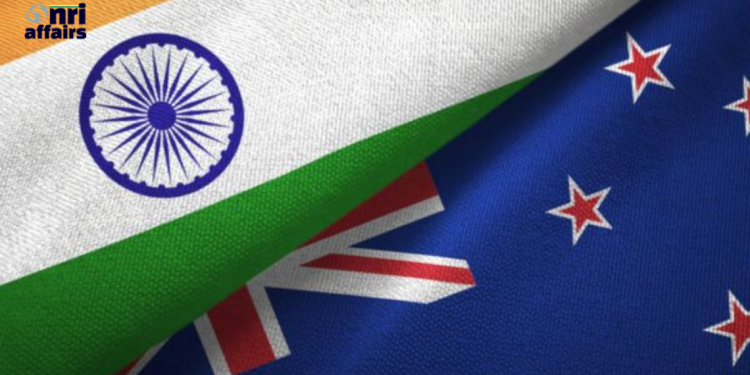In a candid statement, Todd McClay, New Zealand’s Trade Minister, has assumed personal responsibility for the progress of negotiations on a trade deal with India, emphasizing his commitment to fostering bilateral economic ties. McClay’s remarks come amid intensified efforts to finalize a comprehensive trade agreement between the two nations.
Certainly! Here’s an elaboration while keeping the essence of the original message:
With India’s recent elections concluded the New Zealand Government is intensifying its focus on advancing negotiations for a significant trade deal with India. In light of this, Trade Minister Todd McClay has taken a firm stance by declaring that he bears full responsibility for ensuring the success of these crucial negotiations. This demonstrates a strong commitment from New Zealand’s side to strengthen economic ties with India, highlighting McClay’s dedication to fostering bilateral relations and driving forward mutually beneficial trade agreements between the two nations.
“The prime minister has been very clear; he’s given the direction – if it doesn’t happen, it’s my fault.”
In a comprehensive interview with the Sunday Star-Times, McClay addressed various aspects of the trade deal, particularly focusing on the challenges posed by India’s protective stance on its dairy and agriculture sectors.
McClay emphasized the importance of ensuring that any trade agreement with India delivers tangible commercial benefits for New Zealand. Given the significance of dairy in New Zealand’s trade profile, McClay acknowledged the complexities involved in negotiating dairy-related terms.
“Often, we tend to focus solely on dairy as synonymous with selling milk powder from New Zealand, which we excel at… However, there are numerous avenues through which we engage in trade within the dairy sector. While New Zealand’s dairy products and sales remain crucial, it’s essential to recognize that our trade portfolio extends beyond this.”
“Did you know that last year, New Zealand generated more revenue from exporting machines to the US for sorting and packing apples than from selling actual apples? This highlights the diverse opportunities within the broader agricultural technology (ag-tech) sector.”
“The Indian market is approaching a point where it may struggle to produce enough dairy to meet its expanding population’s needs. While India maintains a significant dairy industry, there are potential partnership opportunities for countries like New Zealand to explore.”
Todd McClay emphasized the importance of diversifying trade engagements and exploring opportunities beyond traditional exports, underscoring the potential for collaboration in areas such as ag-tech with India.
“One notable trend we’ve observed is a growing interest among New Zealand businesses operating in the dairy sector to engage with India on topics such as processing and collaboration, rather than solely focusing on sales. This signifies a shift towards exploring cooperative ventures. While this presents an intriguing area for exploration, it’s crucial to acknowledge the significant challenges India faces in this regard. However, negotiating trade agreements is rarely straightforward for New Zealand, regardless of the partner or location.”
McClay’s emphasis on agricultural technology (agri-tech) cooperation finds support from Stephen Hoadley, an honorary academic in politics and international relations at the University of Auckland.
However, despite skepticism from experts and commentators regarding New Zealand’s ability to secure favorable terms for dairy, McClay remains optimistic. He pointed to the recent Australia-India Economic Cooperation and Trade Agreement (ECTA) as a potential blueprint, highlighting provisions that offer reduced tariffs on formula products.
McClay and Climate Change Minister Simon Watts inked three Indo-Pacific Economic Framework agreements on Friday, aiming to ramp up investment, foster the growth of New Zealand’s digital and green economies, and enhance trade with 14 partner nations, representing 40% of the global GDP, with India among them. The agreements prioritize anti-corruption measures and aim to streamline labor and tax standards.
As negotiations progress, McClay’s unwavering commitment to securing a mutually beneficial trade agreement underscores the government’s determination to overcome challenges and unlock new opportunities for economic cooperation with India.
Despite the inherent complexities and challenges involved in trade negotiations, McClay remains resolute in achieving a successful deal with India. His proactive approach reflects the government’s proactive stance on trade policy, prioritizing the interests of New Zealand businesses and fostering economic growth.











